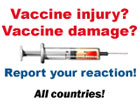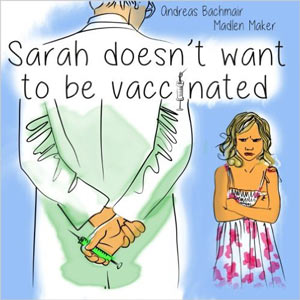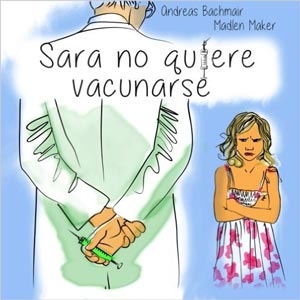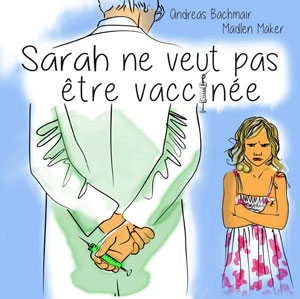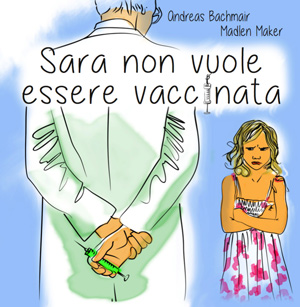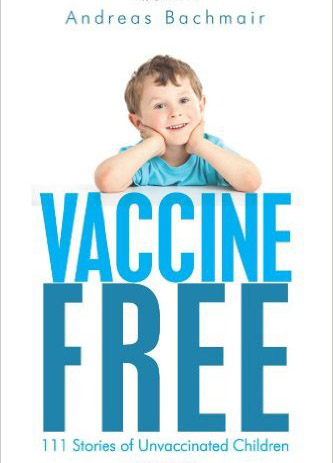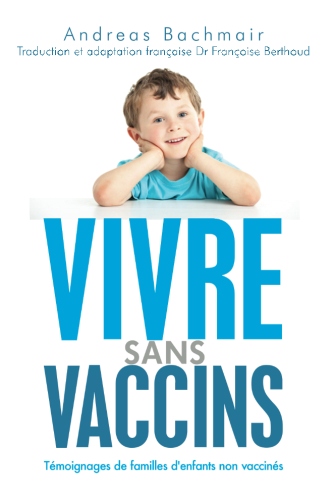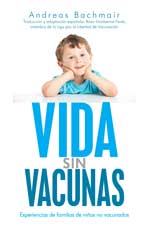Alternative route for a vaccination
Notice: The following comments only represent an overview of the current possibility in Germany, in regards to enhancing their individual decision making – from our viewpoint this should not and can not replace a personal consultation with a competent physician. These comments explicitly do not intend to be understood, as a recommendation of the organization "Ärzte für individuelle Impfentscheidung eV.”
Since there is merely a limited range of vaccine and vaccine combinations on the German and European market available, there is, in the daily practice only a few alternative methods to the official recommendations of the STIKO.
Basically there are four alternatives.
- No vaccination
- Five or sixfold vaccine (approved for the basic vaccination in infancy)
- Sixfold vaccine (tetanus / diphtheria / pertussis / Hib / Polio / Hepatitis B (official recommendation for vaccination of STIKO)
- Fivefold vaccine (tetanus / diphtheria / pertussis / Hib / Polio)
- Single vaccine (approved for the basic vaccination in infancy) Relate to tetanus, polio, Hib, hepatitis B and diphtheria (diphtheria vaccines are single because of their mercury content, however, not recommended).
- Td or TdPolio or Td Pertussis vaccine (not licensed for primary vaccination in infancy, registered after the booster dose for 5th. or rather 3rd birthday.
- it can be an alternative candidate, if you choose to vaccinate against tetanus and diphtheria but not against whooping cough.
The outlined information in sections 1, 3 to 4 variables, does not strictly comply with the recommendations of the Vaccination Commission (STIKO). Physicians therefore sway in a juristical gray zone (as the immunization recommendations of the STIKO are considered a medical standard.) Parents take by omission of such a recommended for vaccinations, the risk (of disease related complications) for their child upon themselves - this requires an intensive and comprehensive information in the context of a medical consultation to be able to make such a responsible and informed decision.
Since the official recommendation of STIKO provides enough literature for concerned parents, [link to page with RKI STIKO recommendations] we will in the following adhere to the above-mentioned alternative vaccination strategies.
dT (diphtheria-tetanus)
- Beginning at the toddlers walking age, the Td vaccine (Td-pur, Td-rix) in increments of 4 – 8 weeks, repeat after 6 to 12 months.
- Combine the Td vaccine with polio (Td-Virelon, Revaxis) in increments of 6 to 12 months,
- the Td-Polio booster at age 10
- thereafter, every 10 - 15 years a Td booster (after determining the vaccine antibody. if necessary).
- The Td vaccine has no vaid licensing for the use as primary immunization during the first five years of a childs life.If parents wish to use these vaccines, they act so at their own risk, provided that the physician can obtain release of his responsibility, by means of concent release. Consequences of signing such a release form relinguishes all liability towards the state, in case an event of bodily damage due to vaccination.
- Combination vaccines as compared to infant vaccines are of decreased quantity in vaccine content: according to a diphtheria component manufacturer, a combo vaccine has an average of one third of infant dose, the tetanus component does not contain any substances that is not also be in used in infant vaccines. Due to the lack of certification in regards to the basic immunization, there are no major studies on the acquired antibody levels after the primary immunization has been completed with these vaccines, during infancy stage or early childhood. If you would like to especially assure yourself, that in respect to the diphtheria protection, there is 100% safeguard, you should have the antibodies of diphtheria checked by means of blood work, after the primary immunization. According to appropriate follow-up in our physicians’ offices there had been after three vaccinations over 90% coverage and after four vaccinations all children acquired sufficient antibodies against both tetanus and diphtheria.
Polio
- In conjunction with the third and fourth Td vaccine (Td or Revaxis Virelon) within a timespan of 6 to 12 months, then the final vaccination at the age of ten.
- Alternative: Two inoculations with a single vaccine within an interval of six months (IPV Virelon), then once again conclude such an immunization at the age of 10 years (eg in combination with Td).
Pertussis
- Especially for children at risk of chronic respiratory diseases, heart defects and other serious underlying diseases.
- Only use as a triple vaccination with diphtheria (D) and tetanus (Infanrix) (approved for infants / for primary immunization)
- then as quadruple with polio vaccine (Hib Pentavac without the bottle; effective, but not a officially approved procedure)
- a four part-vaccination with diphtheria (d), tetanus and polio (Repevax) (licensed in use from the age of 6 / as a booster dose)
- than a fivefold or sixfold vaccination
Hib
- To be considered, especially for premature babies, toddlers and children not breastfed:
- ergo: a three-interval single dose beginning with the third month of life (Hiberix from Switzerland, Germany does not officially approve this),
- or a single injection after 13 Months of birth (Hiberix)
- or a combination usage with diphtheria, tetanus, pertussis and polio (eg Infanrix + Hib, Pentavac).
Measles
- Recommended by the age of 12 - 15 months, especially for chronically ill children. Otherwise, at the latest with the entry into elementary school (providing the child has not previously been subjected to the measles illness).
- Children, of mothers whom have had measles should be vaccinated if a subsequent sibling is born - namely, as it has no effective passive immunity upon birth.
- For males who have not undergone mumps it is preferable to have the combination MMR - mumps vaccine, there is only this combination available.
- Secondary vaccine after atleast four weeks - an alternative review of the vaccination antibodies.
Mumps
- At the latest before the onset of puberty (especially males), an antibody testing whether mumps may not have been "placidly aquired“.
- Possibly combined with the measles vaccination: The mumps vaccine can only be aquired as "MMR", ergo: in combination with the measles and rubella vaccine!
- Twice in intervals of at least four weeks, or after the first vaccination verification of vaccine antibodies.
Rubella
In girls, no later than 13 to 15 years of age, possibly beforehand an antibody testing for clarification of "placidly aquired“?.
Twice at intervals of at least four weeks. Also consider a MMR vaccine, as mumps can result in early pregnancy and be the cause of miscarriage.
Hepatitis B
- Especially for high-risk children (eg hepatitis B carriers) within every household.
- Otherwise, decision making together with the teenager during or after puberty is advised.
- Must be administered three times within a year.
Chickenpox
- During close contacts with children with immune deficiency diseases or chemotherapy, which have had no chickenpox.
- Teenagers and adults who have undergone any Chickenpox symptoms (checking beforhand for possible antibodies, since chicken pox can be placidly aquired) and can thus are overlooked. Caution is advised: Exclude pregnant women from such a pre-vaccination or vaccinate during menstruation!
Pneumococcal
- This is to be considered for children with immunodeficiency diseases or chronic diseases of internal organs.
- In patients whom have to live without a spleen.
- According to latest studies, which are contrary to the recommendations at STIKO. Vaccination at the age of 1 claim 2 to 3 vaccinations are sufficient (one or two within the 1st year of life) one in the 2nd year of life, within the beginning of the 2nd birth year a vaccine.
Meningococcal
- For long stays within countries at level of high risk (called: "meningitis belt", Saudi Arabia)
- the vaccination is recommended for pupils and students who spend long periods of time in countries for which there is an official recommendation for vaccination (GB, IRL, NL, E). The risk of meningococcal C disease is quite insubstantial for them.
Courtesy of the Vereins Ärzte für individuelle Impfentscheide e.V.


